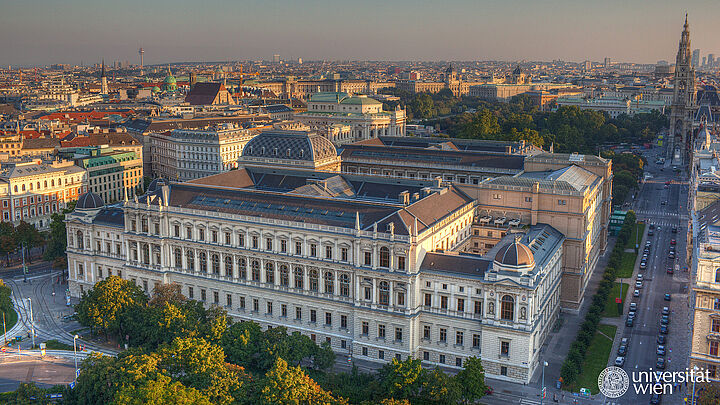Freitag, 15. November 2019, 09:00 - 18:00 iCal
Religion(s) @ school
International Conference
Aula am Campus der Universität Wien und HS1 Orientalisitk
Spitalgasse 2-4 / Hof 1.11, 1090 Wien
Konferenz
School is not only a place of learning for children, but also a space where they encounter new cultural, religious and other worldviews. Regardless of family and social background, children cannot avoid this diversity. It challenges them to acquire competences for reflecting on and processing this plurality. This is not simply a task for religious education, but rather a private or public school educational task aimed at enabling children and adolescents to deal with plurality.
In this process, religious education has the particular task of introducing children to religious and cultural diversity and challenging them to form their own opinions. Cognitive, psychological and ideological factors play an important role in this process. By integrating such factors teachers can guide pupils out of a passive observer-consumer attitude and into the role of an active learner-participant, thus transforming plurality into an educational paradigm. This process encompasses enabling pupils to realize that plurality is not simply a given, but rather an adaptable and integral feature of their individuality that challenges them to make decisions by critically reflecting on themselves and society and to formulate justifications for those decisions.
It is also possible that students will continue to make new decisions along the way. To look at the world again and again from different perspectives should also be considered a human quality and a sign of maturity, because without these competences plurality would remain a buzzword, an empty pronouncement to which no action corresponds. Plurality requires capacities for dealing with and processing it, otherwise it ultimatley results in relativism, or passivity, and extremism.
The question raised at the outset as to how an individual and a dynamic religious identity can emerge must therefore be answered in such a way that a healthy and balanced identity emerges only after serious examination of one’s own tradition, one’s own environment and oneself.
Religious education should offer an appropriate atmosphere in which pupils can learn to process not only concurring, like-minded and compatible, but also competing and divergent histories of religions and, on that basis, to seek, discover and pursue their own individual orientation.
The individual cannot be thought of independently of his or her family, societal and current community membership. Where do I stand as an individual in relation to my own community and how do I reflect that community? Where are the points of interface between pluralism and my community, and how does my community define its relationship to societal diversity? These are basic questions that need to be clarified.
Regarding the example of Muslim children, community membership plays a more important role for pupils in Europe than in Muslim countries. In Europe, the designation that one is a Muslim is always supplemented by the specification of one’s group affiliation.
This also encompasses the very private attitudes in the family, where plurality is lived, practiced and experienced. The goal of educating for community belonging facilitates the transition from cognitive to normative learning in society. All theoretical skills are tested in practice for their feasibility. This means that in their encounters as individuals, pupils learn to assert themselves and to recognize whether the community is willing to support the values and attitudes that they have adopted and whether it can manage and process certain tensions within the community and family.
This conference, through the participation of numerous, primarily European, experts, considers the unique role of religious education in pluralistic societies, which is potentially not otherwise perceived by society in this form:
⁃ Religious education and developing childhood and adolescent competences for pluralism
⁃ Religious education as a location for encountering pluralism and for developing identity
⁃ The position of religions in globalization and migration processes
⁃ Growing fundamentalism and extremism as a challenge for religious education
⁃ Interreligious encounters as a challenge for religious communities
⁃ Dynamic identity as a basis for religious development in children and adolescents
⁃ The role of religious education in the process of integrating refugees and asylum seekers
⁃ Immigrant children and language development in religious education
⁃ Religious education and the ethical foundations of a pluralistic society
Veranstalter
Institut für Islamisch-Theologische Studien
Kontakt
Heidemarie Sonntag
Institut für Islamisch-Theologische Studien
DW: 42503
ras.iits@univie.ac.at
Erstellt am Montag, 30. September 2019, 14:25
Letzte Änderung am Dienstag, 05. November 2019, 11:33

